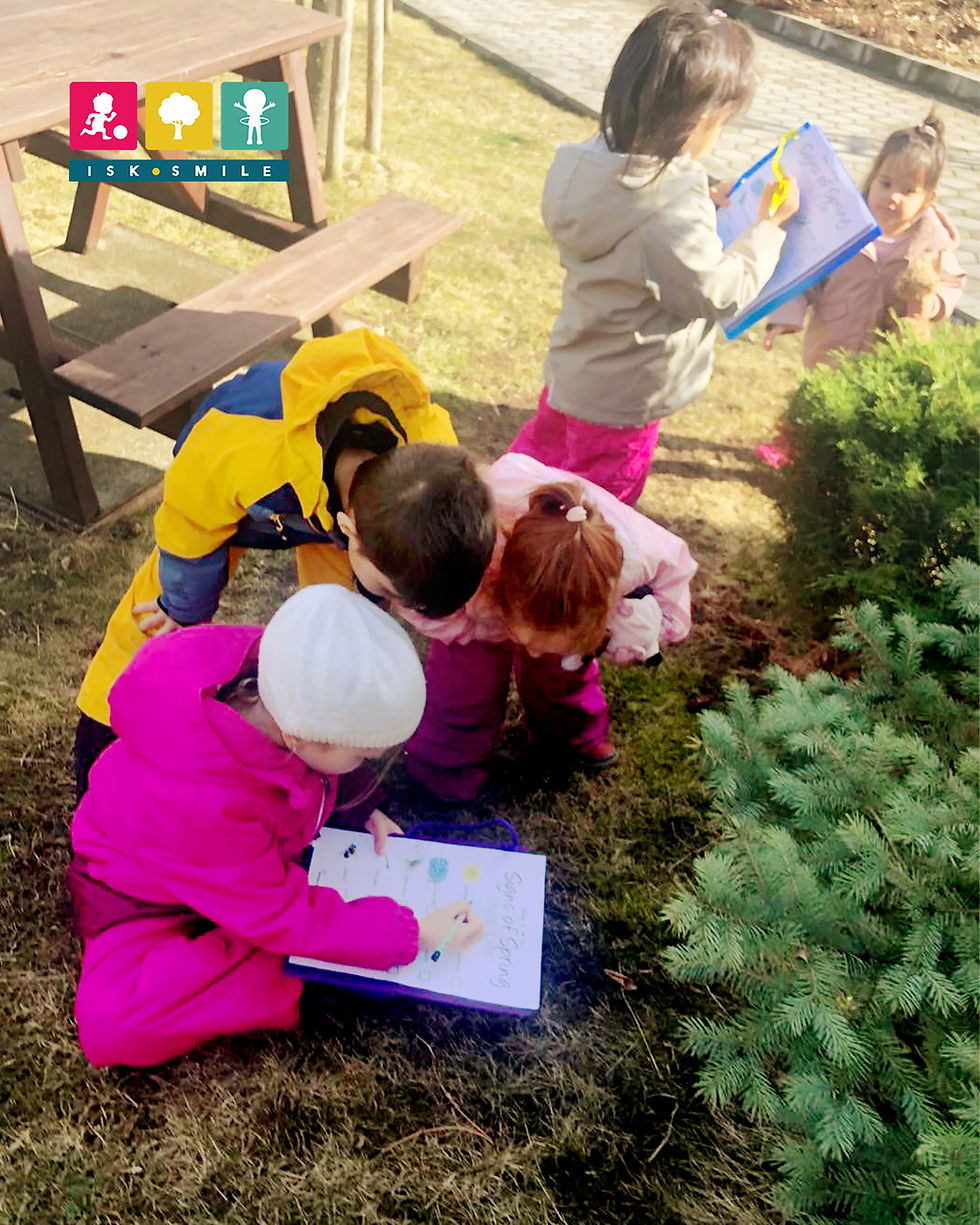The First Days at ISK and what makes us different
- Elina Cherkezova-Veleva
- Aug 19, 2025
- 3 min read

The First Days: What to Expect When Joining ISK-Smile
Starting kindergarten is a big milestone—for both children and their parents. At ISK-Smile, we understand that the transition into a new environment can bring excitement, curiosity, and sometimes a little nervousness. That’s why our first days together are designed to be warm, welcoming, and filled with opportunities for children to feel safe, confident, and eager to learn.
Our goal is to create a smooth and joyful start to your child’s learning journey, grounded in the values of the Primary Years Programme (PYP). Through structured routines, caring support, nourishing meals and personalized attention, we help every child adjust at their own pace. ISK-Smile is not the typical kindergarten, we take special pride in our individualized approach to learning, focus on sports, building strong and lasting relationships and encouraging enquiry-based learning.
A Gentle Welcome
The first days at ISK-Smile are about connection. Teachers take the time to get to know each child—their interests, temperament, and comfort levels. We welcome children, gradually introducing them to our daily rhythm.
Familiar Routines, Predictable Comfort
We start each morning with circle time—a calm and engaging way to ease into the day. Children are introduced to classmates, share their thoughts, sing songs, and are encouraged to participate in the learning process. This structured start provides a sense of stability and community, which helps children feel secure.
Throughout the day, children explore various learning centers, where they can engage in hands-on activities like drawing, building, role play, puzzles, and early literacy games. These stations allow children to choose how they interact with new materials, supporting independence and decision-making—both key aspects of the PYP.Our daily sports classes are a great way for children to play together, communicate with each other and build relationships, as well as a love for sport!
Supporting the Whole Child
At ISK-Smile, we don’t rush the process. We observe how each child responds to their environment and adjust our approach accordingly. If one child prefers quiet observation, we give them time. If another wants to jump into play, we encourage it. We offer plenty of opportunities to move, rest, explore, and express feelings.
This balance of freedom and guidance is what helps children feel ownership over their day—a fundamental principle of inquiry-based learning.
Building Early Relationships
Children thrive when they feel seen and heard. From the very first day, our educators focus on building strong relationships—not only with the children, but also with families. We provide updates, invite conversations, and work together with parents to support the transition. Children are also encouraged to build relationships with each other, through group activities and tasks, they feel proud in accomplishing together. Creating a friendly and empathetic environment is key to our approach to early learning and building friendships.
By nurturing these partnerships from the beginning, we create a supportive network around each child, allowing them to feel safe enough to be curious, try new things, and express themselves freely.
What You Can Do as a Parent
Your role in the first days is just as important as ours. Here are a few ways you can help ease the transition:
Talk positively about the new environment before the first day.
Keep goodbyes short and reassuring.
Ask your child what they enjoyed that day.
Stay in touch with your child’s teacher to exchange observations.
Together, we create a smooth and joyful start that sets the tone for the years ahead.
A Confident Beginning
The beginning of kindergarten education is not just a milestone—it’s the start of a journey filled with growth, friendships, and discovery. At ISK-Smile, we take pride in giving each child the right tools and the right amount of support to step into this journey with confidence.
Because when children feel safe, supported, and encouraged to ask questions, they don’t just adjust—they thrive.





Comments